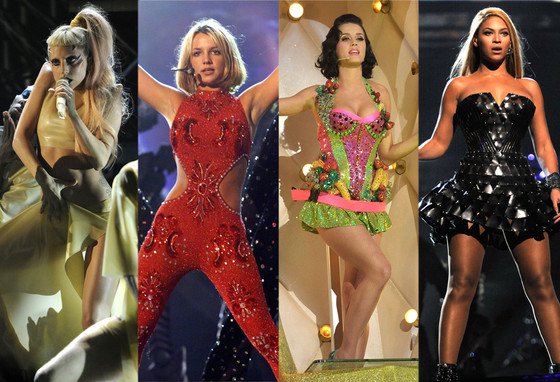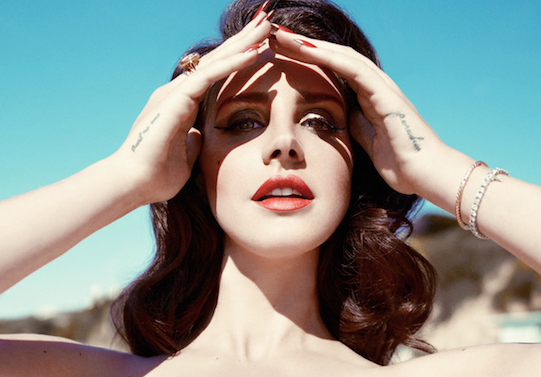Opinion: Why do gay men love divas so much?

 Brian O’Flynn (pictured) explores that lifelong link so many of us have with our favourite female artists…
Brian O’Flynn (pictured) explores that lifelong link so many of us have with our favourite female artists…
Divas, queens, fag hags… you may know them by many different handles, but it is certain that this particular breed of woman is worthy of her own title. Throughout history, there have been recurring instances of female icons that have attracted a disproportionately large gay following. I use the word gay as opposed to LGBT in this instance, because the fandoms I’m referring to are comprised primarily of gay men.
The phenomenon of diva worship has always fascinated me, simply because I find myself helplessly subject to it. Despite my best efforts to diversify my cultural tastes, I can never seem to detach from the allure of the female artist. I struggle to identify to the same degree with any male artists, even gay ones.
What makes this phenomenon so mysterious is how broadly it seems to apply across artistic genres, at least in my case. While the energetic dance-pop of Lady Gaga & co. is often typified as “gay”, my own affinity with the feminine goes much deeper. I obsessively follow melancholy artists like Lana Del Rey, rappers like Angel Haze, indie acts like Daughter and folk acts like First Aid Kit. Even in poetry, comedy and cinema, no male can hold a candle to their female counterparts, as far as I can see.
Working from the assumption that I’m not unique, it’s not just the female pop brand that gay men affiliate with, but the feminine in all its forms.
Of course not all gay men can be lumped into this category, and I don’t mean to stereotype. I am discussing a trend, not a universal principle. But there unquestionably is a trend. So what’s behind it?
Wouldn’t it make more sense for gay men to be obsessed by other gay male artists? In the same way that straight teenage girls obsess over the 1D boys, why don’t we glorify artists we’re attracted to?

Run a Google search and you’ll find countless academic papers and articles on the subject, but none of their arguments hold much water for me. Aside from being reductionist, some of them are just plain insulting. Joe Kort in Huffington Post suggests these women are our stand-in mothers. In his book The Rise and Fall of Gay Culture, Daniel Harris suggests that we are living vicariously through these beautiful women who can seduce the straight men we so badly desire.
So we’re expected to view ourselves as desperate, hetero-obsessed gays with mommy issues? Sorry, but if that’s not shallow stereotyping then I don’t know what is.
Maybe women are easier to identify with because gay men often grow up feeling ostracised by male peers? Maybe we just want to listen to music about being in love with men, but there aren’t enough gay male artists singing about it, so we settle for women?
A more socially conscious explanation might be the shared experience of oppression. Perhaps the close link between feminism and LGBT rights can account for the unity between straight women and gay men? Perhaps we see a little of ourselves in the fiery, spirited women who fight for the spotlight against all odds.

This explanation is almost ironic in light of gay men’s reputation for misogyny. In the past year alone, female celebrities including Azealia Banks and Rose McGowan publicly claimed that gay men are more misogynistic than straight men.
Writing for Vice, Ryan O’Connell paints a negative portrait of gay men and their relationship with straight women. He sees it as abusive and often belittling. He cites the ubiquitous “no femmes” qualifier on hook-up apps like Grindr as an example of our dismissive relationship with the feminine. If we can’t tolerate femininity in each other, then how can we respect it in women?
So if gay men are not often very good feminists, our reverence for the feminine seems even more out of place. Is this a story of exploitation, then? Do we value women for entertainment but not on any other level?

At the end of the day, saying that gay men and straight women have some sort of unspoken alliance is generalising. Saying that that alliance is based on exploitation, or jealousy or anything else is generalising too.
I think this phenomenon is just that; a phenomenon. For some gay men, like me, the feminine is a key part of our identity. For others, it isn’t at all. Can we really explain culture and identity? Can it really be analysed in such a black and white way? The feminine has always been associated with the gay man; before I even knew I was gay, I was told I walked like a girl, talked like a girl and generally acted like one. If my relationship with the feminine is so inherent to my existence, what’s the use in questioning it. And why do I need to? I am comfortable with my identity.
This is about who we are and how we express ourselves; ultimately, that doesn’t need to be justified.
Words by BRIAN O’FLYNN
More by Brian:
What can we expect from Lana Del Rey’s third album?
‘No’ campaigners take a harsh toll on Ireland’s LGBT community
Why we mustn’t take the ‘LGBT’ out of Pride events
